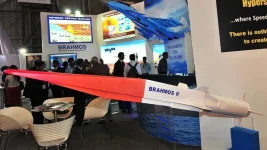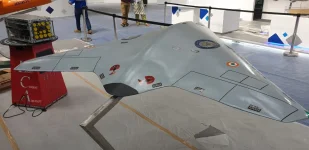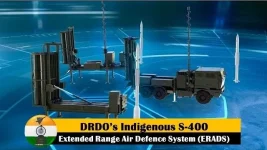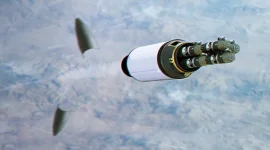- Views: 2K
- Replies: 3
In a significant stride towards bolstering India’s self-reliance in missile technology, the Defence Research and Development Organisation (DRDO) has initiated the selection process for a pivotal industrial partner.
The organisation has released a Request for Information (RFI) to appoint a 'Development-cum-Production Partner' (DcPP) for its ambitious Liquid Fuel Ramjet (LFRJ) engine programme.
This advanced propulsion system is a critical building block for the country's upcoming line of supersonic cruise missiles, designed to deliver enhanced range, superior speed, and deeper indigenisation in strategic defence capabilities.
The LFRJ engine represents a technological leap over traditional solid-fuel systems.
Unlike solid propellants, liquid fuel allows for throttle control during flight, enabling missiles to adjust their speed and trajectory dynamically. This capability is essential for sustained supersonic cruise performance, making the missile harder to intercept.
By adopting the DcPP model, the DRDO aims to integrate private industry right from the initial design phase. This strategy is intended to prevent production bottlenecks later on, ensuring a smooth handover from the prototype stage to full-scale mass manufacturing—a domain that has historically been the preserve of state-run enterprises.
Following the release of the RFI, the DRDO has shortlisted 14 domestic companies to compete for this prestigious contract.
The selection reflects the growing maturity of India's defence industrial base, featuring a robust mix of public sector undertakings (PSUs), established private aerospace conglomerates, and agile new-age technology firms.
The shortlisted entities include:
- Godrej & Boyce, Mumbai
- Bharat Advanced Torpedoes Ltd (BATL), Thiruvananthapuram
- Tata Advanced Systems Ltd (TASL), Hyderabad
- VEM Technologies, Hyderabad
- Larsen & Toubro, Coimbatore
- MTAR Technologies, Hyderabad
- Bharat Dynamics Ltd (BDL), Hyderabad
- BEML, Bengaluru
- Hindustan Aeronautics Ltd (HAL), Koraput
- PTC Industries, Lucknow
- Skyroot Aerospace, Hyderabad
- Jaykay Enterprises, Kanpur
- BHEL, New Delhi
- KUN Aerospace, Chennai
The chosen partner will be tasked with the co-development and eventual mass production of the LFRJ engines. This partnership is poised to be one of the most extensive public-private collaborations in the history of Indian missile propulsion.
Beyond manufacturing, the selected firm will also be required to establish specialised infrastructure, manage rigorous ground-testing facilities, and secure a resilient, long-term supply chain to support the nation’s supersonic arsenal.
This strategic initiative is firmly rooted in the Government of India’s 'Aatmanirbhar Bharat' vision. By reducing dependence on foreign propulsion imports and fostering domestic expertise, the programme aims to empower the private sector to take a leading role in the development of critical strategic weapon systems.





